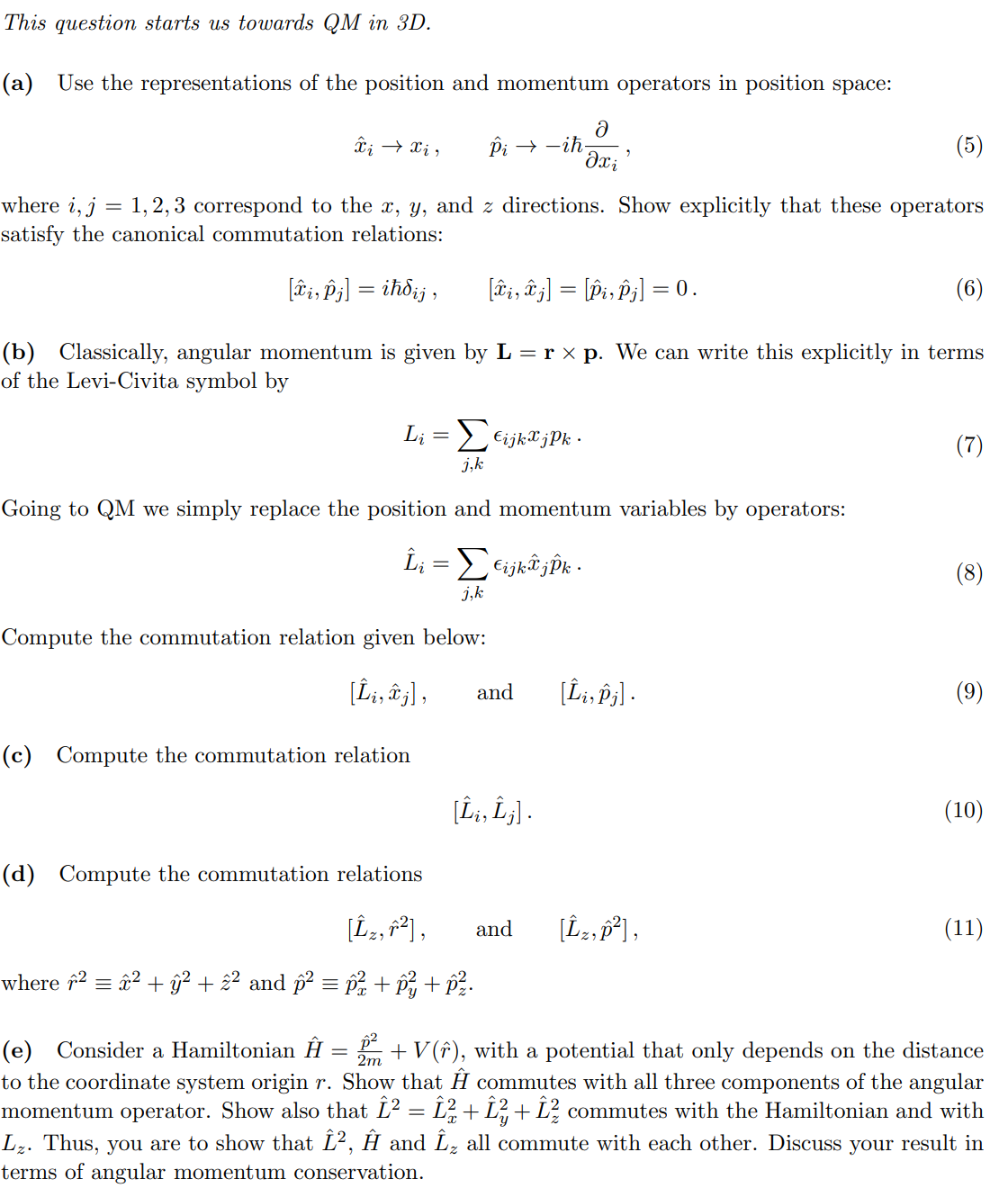Question: Please help with the question below on quantum mechanics: This question starts us towards QM in 3D. (a) Use the representations of the position and
Please help with the question below on quantum mechanics:

This question starts us towards QM in 3D. (a) Use the representations of the position and momentum operators in position space: pi + -ihaxi (5) where i, j = 1, 2, 3 correspond to the x, y, and z directions. Show explicitly that these operators satisfy the canonical commutation relations: [rip;] = ihdij , [xi, ijl = [Pip;] = 0. (6) (b) Classically, angular momentum is given by L = r x p. We can write this explicitly in terms of the Levi-Civita symbol by Li = LeijkajPK . (7) j , k Going to QM we simply replace the position and momentum variables by operators: Li = _ eijkajDK . (8) j,k Compute the commutation relation given below: [ Li, x;], and [Li, pil. (9) (c) Compute the commutation relation [Li, Lj]. (10) (d) Compute the commutation relations [Lz, 72] , and [Lz, P2 ] , (11) where r2 = x2 + y2 + 22 and p2 = Px + Py + P2. (e) Consider a Hamiltonian H = 2m Pm + V(r), with a potential that only depends on the distance to the coordinate system origin r. Show that H commutes with all three components of the angular momentum operator. Show also that L2 = LX + L? + L? commutes with the Hamiltonian and with Lz. Thus, you are to show that L2, H and Lz all commute with each other. Discuss your result in terms of angular momentum conservation
Step by Step Solution
There are 3 Steps involved in it

Get step-by-step solutions from verified subject matter experts


